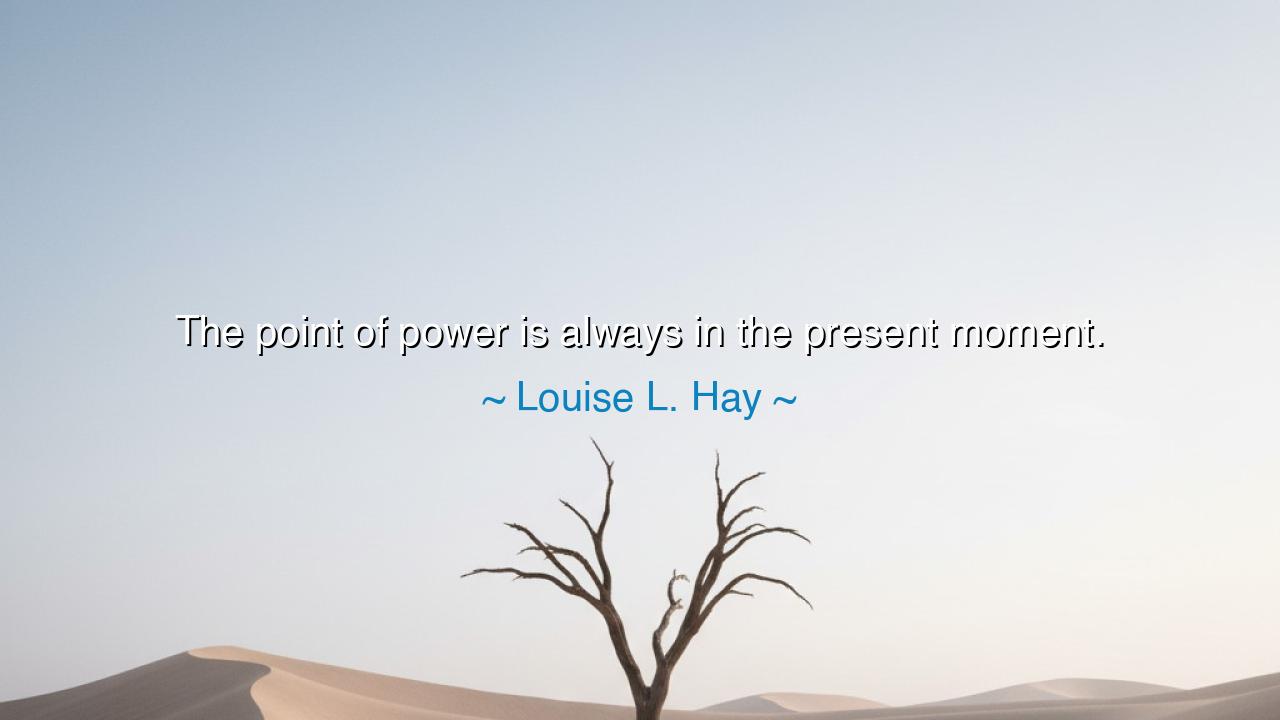
The point of power is always in the present moment.






Louise L. Hay, the healer of minds and hearts, declared: “The point of power is always in the present moment.” In this saying lies a truth as old as the dawn and as fresh as the rising sun. For neither the shadows of the past nor the illusions of the future hold the keys to our destiny. It is only in the present, this fleeting and eternal instant, that man may act, choose, and shape the course of his life.
The ancients taught that the river cannot be stepped into twice, for each moment flows onward, never to return. Yet within each drop of that river lies the chance for transformation. The power Hay speaks of is not brute force, but the strength to direct one’s thought, word, and deed here and now. The past may chain the heart with regret, and the future may lure it with fear, but only the present allows us to break free, to stand upright, and to claim our freedom.
Consider the story of Marcus Aurelius, emperor and philosopher. Surrounded by war and plague, burdened by the weight of empire, he did not despair in the chaos of yesterday nor lose himself in the anxieties of tomorrow. Instead, he returned again and again to the present moment, writing in his Meditations: “Do not waste the rest of your life imagining what others think, but attend to what lies within.” By grounding himself in the now, he found the power to endure and to rule with wisdom.
The wisdom of Hay is thus not a new invention, but an eternal reminder. The present moment is the forge where destiny is hammered. To delay is to surrender, to brood is to weaken, but to act now is to command. Every breath, every choice, every heartbeat is a chance to turn the course of a life.
Let the seekers of truth remember: the past is a tomb, the future a dream, but the present is alive. It is the battlefield, the sanctuary, the seed, and the harvest. Those who awaken to it find themselves armed with a force that neither time nor fate can steal. To dwell fully in this instant is to step into the true throne of life, where all power resides.






LTgiang luong truong
This makes me reflect on how often we postpone our happiness, thinking it will come when conditions change. Maybe Hay’s point is that waiting itself is a form of self-disempowerment. But then I wonder—how does this perspective apply to people facing difficult realities like illness or poverty? Can they truly access power in the present, or does this idea work better as a mindset than a universal truth?
SHSexy Hau
I find this quote empowering, yet it raises a question—if the present is where our power lies, does that mean we’re responsible for transforming every moment, even the painful ones? That’s a lot of pressure in a world where so much feels out of our control. Maybe Louise Hay meant that awareness itself is the power: recognizing that how we respond right now defines our freedom. What do you think?
TTCu Thi Thu
I really resonate with this statement, but I also find it challenging. If the present moment holds our true power, what does that mean for long-term planning or learning from the past? Are we supposed to completely let go of those, or simply not be ruled by them? It seems like a fine balance between living consciously now and still shaping the future with intention.
ATGiap Vu Anh Thu
This idea feels so simple yet incredibly profound. It makes me think about how often we lose power by living in regrets of the past or worries about the future. But how do we actually train ourselves to stay in the present moment when our minds are constantly pulled elsewhere? Is mindfulness enough, or does it require a deeper shift in how we perceive time and control in our lives?